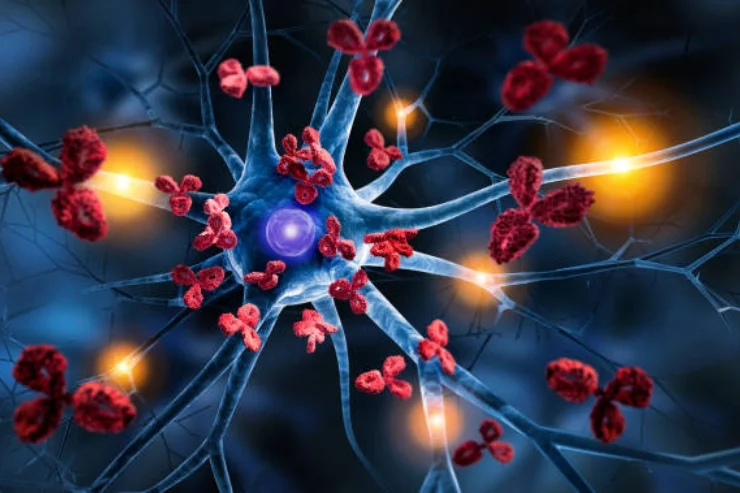
Personalized Functional Medicine Approach to Autoimmune Diseases
Autoimmune diseases develop when the immune system mistakenly targets the body’s own healthy tissues, leading to chronic inflammation, pain, and potential organ dysfunction. These conditions can impact various systems, including the skin, joints, thyroid, digestive tract, and nervous system. A Functional Medicine approach focuses on identifying and addressing the root causes rather than just managing symptoms, helping individuals regain optimal health and well-being.
Understanding Autoimmune Diseases
The immune system is designed to defend against harmful invaders like bacteria and viruses. However, in autoimmune disorders, this defense mechanism becomes overactive, attacking the body’s own cells. There are over 80 recognized autoimmune diseases, including:
Rheumatoid Arthritis (RA): Causes joint inflammation, stiffness, and pain.
Hashimoto’s Thyroiditis: An autoimmune thyroid disorder leading to hypothyroidism.
Lupus (SLE): Affects multiple organs, causing widespread inflammation and fatigue.
Psoriasis & Psoriatic Arthritis: Skin and joint inflammation due to an overactive immune response.
Multiple Sclerosis (MS): A neurological condition where the immune system attacks nerve coverings.
Type 1 Diabetes: The immune system destroys insulin-producing cells in the pancreas.
Inflammatory Bowel Disease (IBD): Includes Crohn’s disease and ulcerative colitis, affecting gut health.
Each condition has unique triggers and symptoms, making a personalized treatment approach essential for long-term relief and disease management.
How Functional Medicine Supports Autoimmune Disease Management
Rather than merely suppressing symptoms, a Functional Medicine approach aims to uncover the underlying causes and create a customized healing plan.
Identifying Root Causes
Autoimmune diseases often result from a combination of genetic predisposition, environmental toxins, gut imbalances, chronic stress, infections, and nutritional deficiencies. Advanced diagnostic testing helps uncover triggers such as:
Leaky Gut Syndrome (Intestinal Permeability): A weakened gut lining allows harmful substances to enter the bloodstream, triggering immune reactions.
Nutrient Deficiencies: Low levels of vitamin D, magnesium, omega-3 fatty acids, and zinc can impact immune function.
Hidden Infections & Toxins: Chronic infections (e.g., Epstein-Barr virus) and environmental toxins can contribute to immune imbalances.
Restoring Gut Health & Reducing Inflammation
A significant portion of the immune system resides in the gut, making digestive health a key factor in autoimmune management. Functional Medicine strategies include:
Elimination Diets & Anti-Inflammatory Nutrition: Identifying and removing inflammatory foods while incorporating nutrient-rich, healing foods.
Microbiome Support: Using probiotics, prebiotics, and targeted supplements to restore gut balance.
Gut Barrier Repair: Incorporating amino acids, collagen, and herbal compounds to strengthen intestinal integrity.
Personalized Nutrition & Lifestyle Adjustments
A tailored diet and lifestyle can significantly impact autoimmune conditions. Recommended strategies include:
Autoimmune Paleo (AIP) Diet: Eliminating immune-triggering foods such as gluten, dairy, soy, and processed foods.
Blood Sugar Regulation: Managing insulin resistance to prevent immune flare-ups.
Stress Reduction & Sleep Optimization: Using mindfulness, yoga, and sleep hygiene practices to support immune function.
Targeted Supplementation & Herbal Support
Nutritional support can help regulate the immune response and reduce inflammation. Functional Medicine practitioners use evidence-based supplements to:
Reduce systemic inflammation
Support mitochondrial energy production
Strengthen the gut barrier
Modulate immune function
Herbal remedies like turmeric, ashwagandha, licorice root, and medicinal mushrooms provide additional support for immune balance and inflammation control.
Detoxification & Reducing Environmental Triggers
Exposure to heavy metals, pesticides, and chemicals can contribute to autoimmune flare-ups. Detoxification strategies include:
Liver Support: Optimizing detox pathways to remove harmful substances.
Heavy Metal Chelation Therapy: Reducing toxic burden for improved immune function.
Guidance on Environmental Toxins: Identifying and eliminating exposure to harmful household and personal care products.
Mind-Body Connection & Emotional Healing
Chronic stress, unresolved trauma, and emotional imbalances can exacerbate autoimmune conditions. Integrative therapies such as guided meditation, breathwork, and energy healing play a vital role in restoring emotional resilience and immune balance.
A Comprehensive & Individualized Healing Journey
A Functional Medicine approach emphasizes treating the whole person rather than just managing symptoms. By addressing immune dysregulation, gut health, inflammation, and lifestyle factors, individuals can achieve long-term healing and improved quality of life.
Empowering patients with knowledge, tools, and personalized care enables them to take control of their health. If you are struggling with an autoimmune condition, seeking a holistic and functional approach may provide the relief and support needed for lasting wellness.